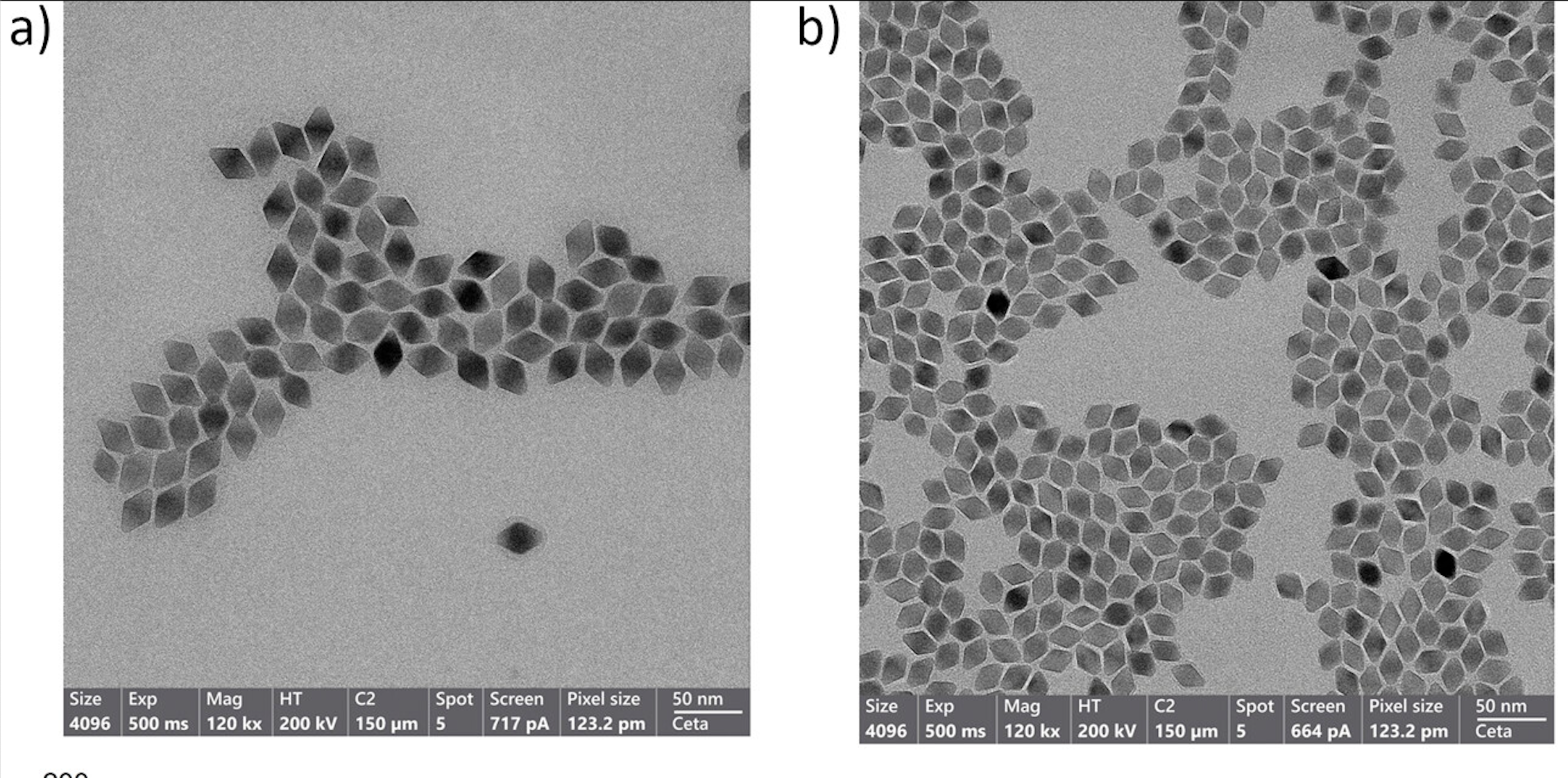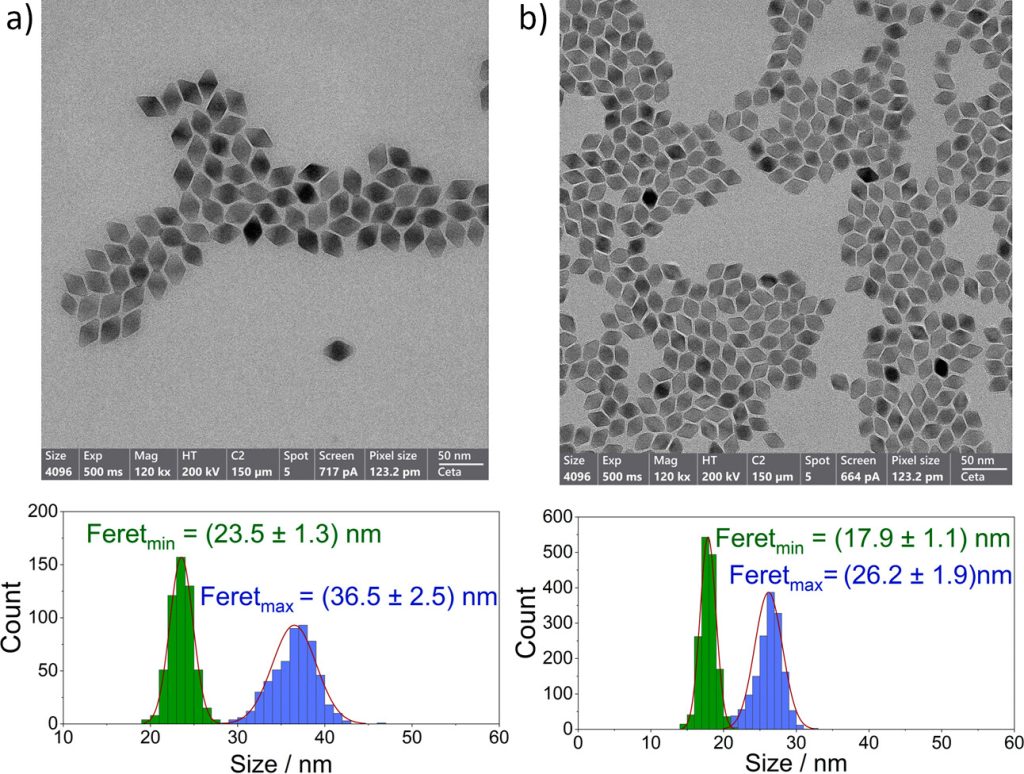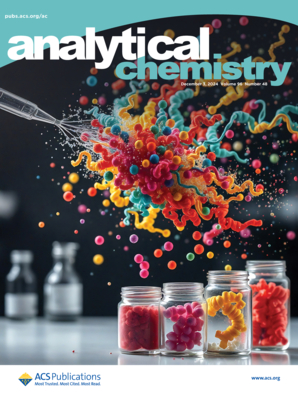News, Publications
Bipyramids for size & concentration characterization of nanomaterials

A Major Advancement of METRINO
A Major Advancement in the MetrINo Project
A recent open-access publication in Analytical Chemistry by Deumer, J. et al. (2024), titled “New Nanoscale Reference Materials: LiYF4:Yb,Tm Bipyramids for Sizing and Particle Concentration”, highlights a significant step forward in the development of reference materials for nanoparticle characterization. This research, involving key contributors from the MetrINo project, presents LiYF4:Yb,Tm bipyramidal nanoparticles as new standards for sizing methods and particle number concentration measurements.
Why Does This Matter?
Accurate characterization of nanomaterials is essential for regulatory compliance, industrial applications, and scientific research. While most existing nanoscale reference materials (nanoRMs) are spherical, real-world nanomaterials often have complex shapes, requiring better standards for characterization techniques.
The study introduces two monodisperse bipyramidal nanoparticles, UCNP-BP1 (43 ± 2 nm) and UCNP-BP2 (29 ± 2 nm), which have been analyzed using:
✅ Small-angle X-ray scattering (SAXS) for precise size measurements
✅ Transmission electron microscopy (TEM) for shape analysis
✅ Thermogravimetric analysis (TGA) and ICP-OES for mass and composition validation

Integration with MetrINo
As part of the MetrINo initiative, these findings contribute directly to efforts in standardization and metrology for nanomedicine. The three last authors of the paper—, R., Resch-Genger, U., and Andresen, E.—are Work Packages leaders of the Project, and Robin Schürmann is the overall project coordinator. Their work aligns with international standardization efforts aimed at improving nanomaterial characterization for regulatory acceptance.

Looking Ahead
These bipyramidal nanoRMs are expected to play a crucial role in calibrating advanced measurement techniques and supporting new regulations for nanoparticle-based medicines. Future steps include interlaboratory validation and possible certification under ISO 17034 standards.
For further details, you can access the full study here: Anal. Chem. 2024, 96, 48, 19004–19011